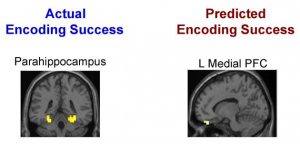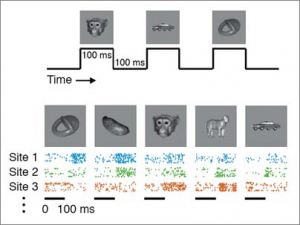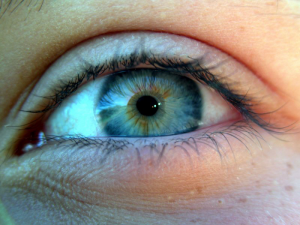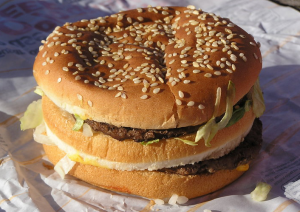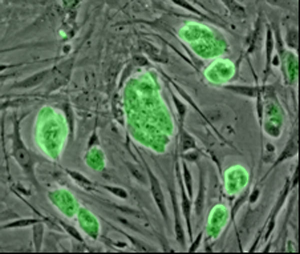LiveScience.com is reporting that a new brain-imaging study performed by researchers at MIT has concluded that if you predict a memory will need to be recalled as you store that memory, you will in fact be able to remember it better later. In other words, people who make more accurate memory predictions are better learners. …
Category: Neuroscience
Nov 24 2005
A Thought Bouncer for Your Brain
Scientists from the University of Oregon have discovered that a person’s memory capacity is not just dependent on how much information their brain can store, but also on how well they are able to filter their thoughts to focus on what they are trying to remember. In other words, people with an effective “thought bouncer” …
Nov 13 2005
Meditation Thickens the Brain
Scientists have long known that meditation has the ability to permanently alter neural patterns, but researchers have recently discovered that the practice also causes parts of the brain to physically thicken. LiveScience.com has a summary of the study that was led by Sara Lazar, an assistant in psychology at Massachusetts General Hospital. The 20 participants …
Nov 08 2005
Women Get a Bigger Kick Out of Cartoons
It has long been perceived by scientists and non-scientists alike that women and men process and react to humor in different ways. Now researchers from the Center for Interdisciplinary Brain Sciences Research at Stanford University School of Medicine have neurological evidence to back that theory up. NewScientist.com has a summary of their study that is …
Nov 05 2005
Scientists Decipher Visual Neural Output
MIT has published a news release about how neuroscientists in the McGovern Institute for Brain Research have recently made significant advances in their attempts to learn how the inferotemporal (IT) cortex identifies and categorizes visual data. The ability to visually recognize objects, while usually taken for granted because it happens quickly, automatically, and subconsciously, is …
Nov 01 2005
Rice University Blindsight Study
LiveScience.com has a summary of a study published this week in the online edition of Proceedings of the National Academy of Sciences that provides additional evidence of the phenomenon known as blindsight, residual visual sensitivity experienced in the brain even when one is blind or otherwise unable to see. While the results of the study …
Oct 28 2005
Extra Brain Cells Jump Start Weight Loss
According to Nature.com, researchers have discovered that an injection of a drug used to promote the growth of new brain cells also has the effect of causing weight loss, as much as 15%, in laboratory mice. Scientists are hoping that they can harness this side-effect, which lasts for at least several weeks, to fight obesity …
Oct 25 2005
Remote-Controlled Humans
AP Reporter Yuri Kageyama has written a summary published at LiveScience.com of the day she was “remote-controlled” while visiting a research center in Japan. Nippon Telegraph & Telephone Corp., a Japanese telephone company, has created a headset that delivers a low voltage electric current that can be controlled remotely and affects the balance and movement …
Oct 23 2005
FDA Approves Brain Stem Cell Transplant
On Thursday of last week the FDA approved the first transplant of fetal stem cells into human brains. The first recipients will be children who suffer from a rare and fatal genetic disorder, but if the procedure is successful it could be the first step in making great strides toward treating, curing, and possibly preventing …
Feb 16 2005
Neuroscientist to Become His Own Monkey
In an effort to explore the relationship between brain activity and consciousness, Stanford University nueroscientist Bill Newsome is currently seeking regulatory approval to implant an electrode into his own brain. Engadget has a summary of an interview MIT Technology Review did recently with Newsome in which he explains his obsession with determining how brain functions …

